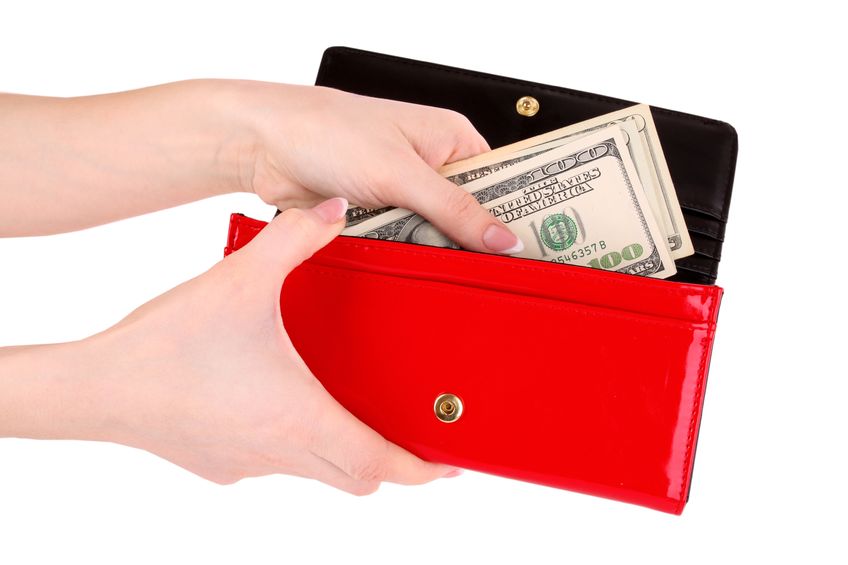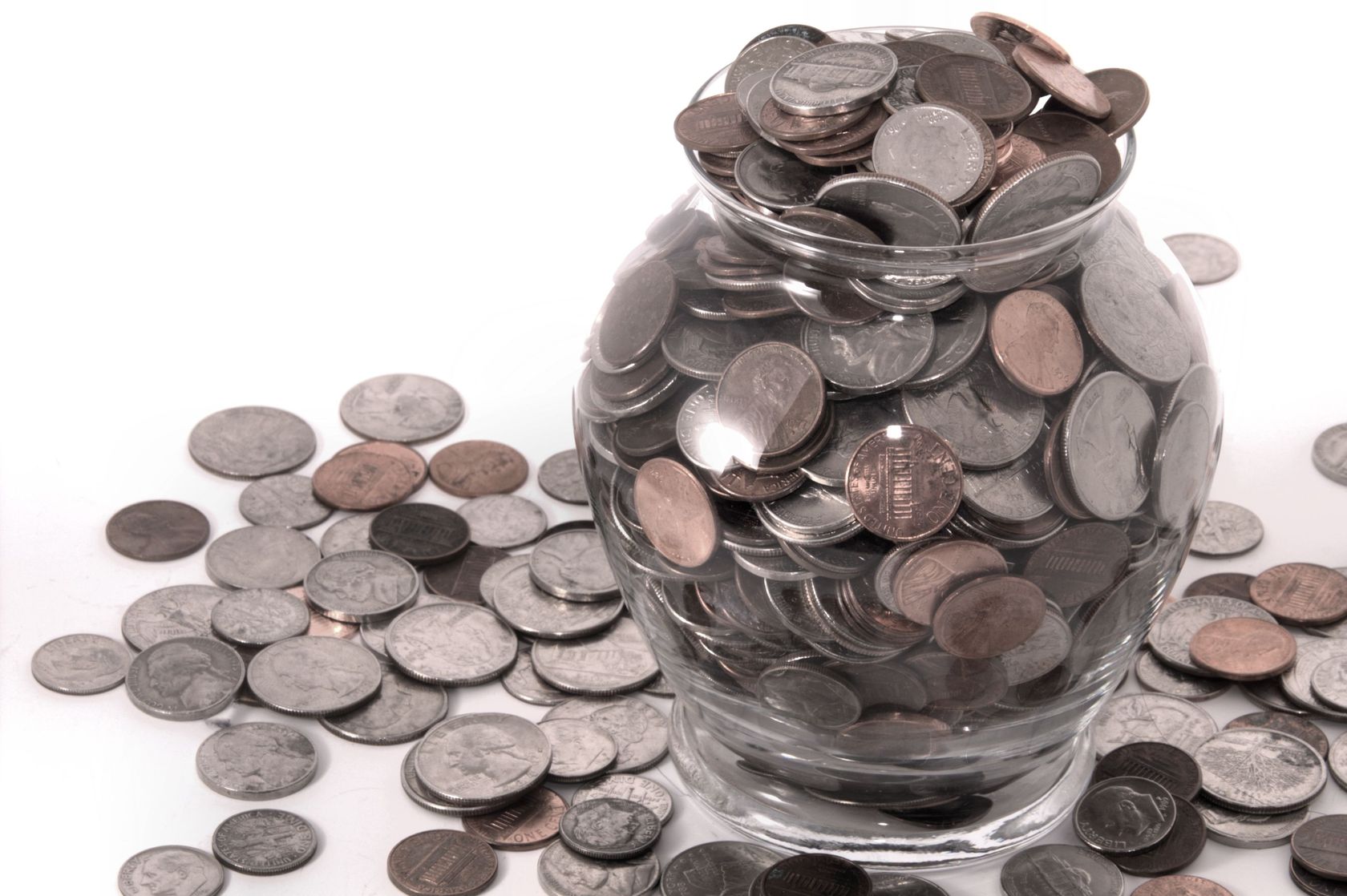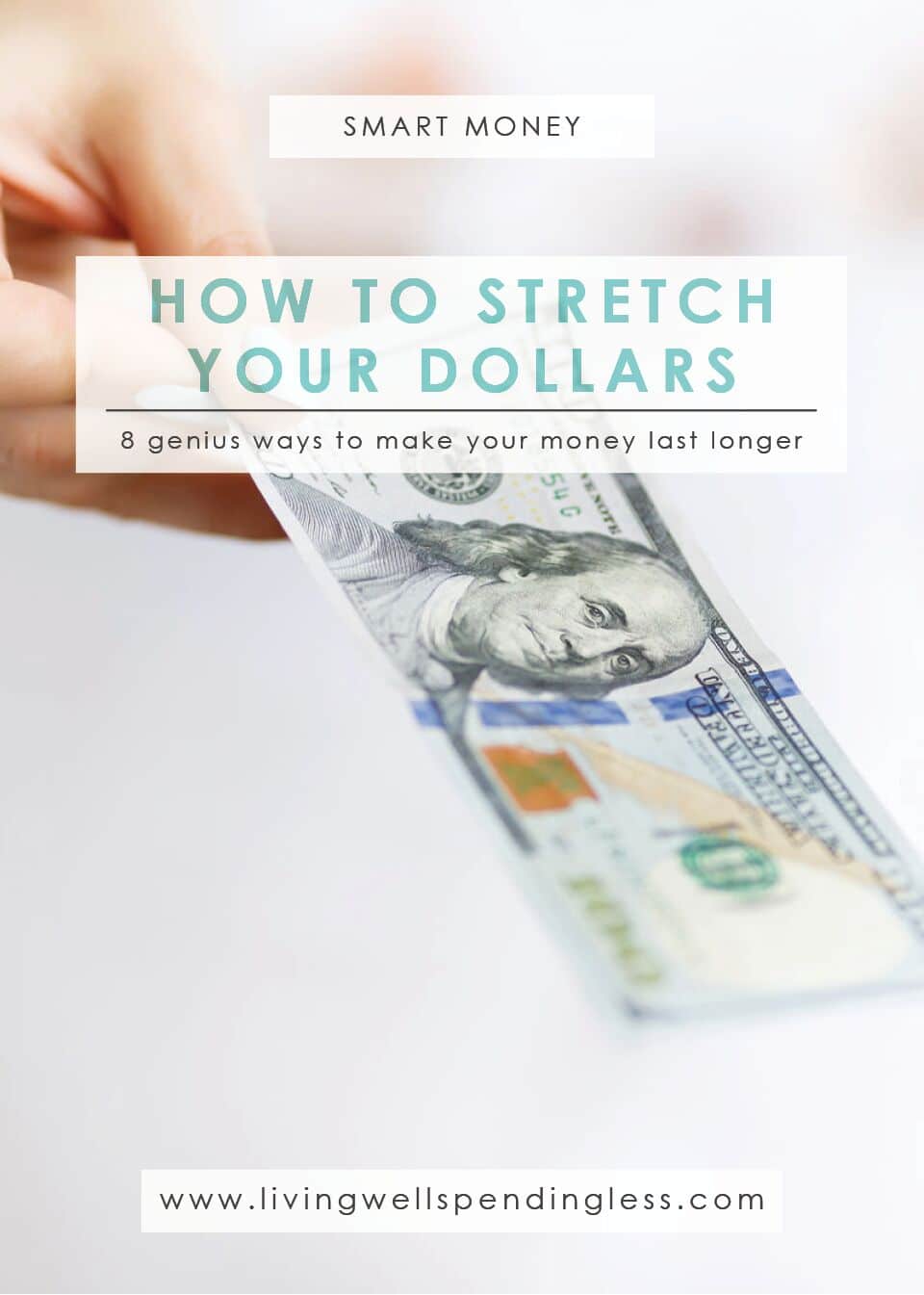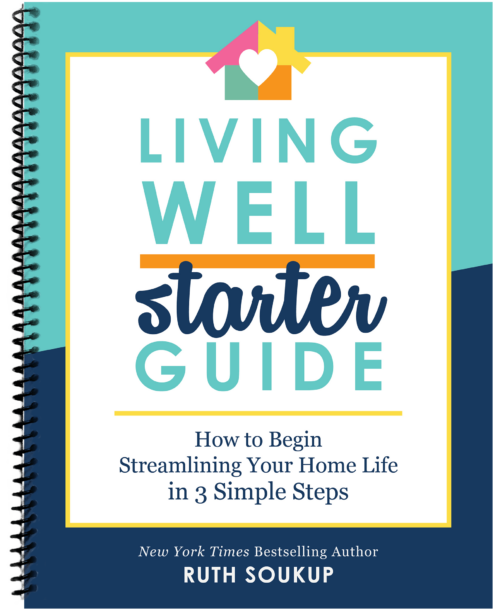It’s happened to all of us. The 21st or the 25th rolls around and suddenly we have no idea how we’re going to make it to the end of the month!
Where does the money go? I know I’ve looked back on some months and thought, “I don’t even remember spending on anything!” And yet, here we are—a week or even two from the end of the month…and we’re broke.
So frustrating! Sometimes even scary.
One of the best ways we can make our money stretch is to start paying closer attention to our spending habits. After all, to really change and start getting to a financially stable spot, we have to know where we stand right now. Today.
So take a look. You’re brave! You can do it.
Where are you with your spending habits? What’s working? What areas could use some improvement?
Is it easy to change our spending habits? Oh my gosh, no. It’s hard! I wish I could say it was easy, but it’s something I struggle with to this day. It’s a work in progress.
Aim for progress, not perfection. Work on your financial goals each month and look at what worked and what could still use some practice. As time goes on, you’ll see your money WILL actually stretch further and further each month. You won’t end up with a magic money tree, but you WILL end up feeling less stressed and more at peace financially.
Here are a few ways to make your money last longer:

1. Track What You Spend
To know what you need to change or work on, you have to gain a good idea of where your money goes and what you’re spending it on. So many of us swipe our debit card or plunk down a credit card and forget about it. It becomes a habit. When checks were the norm, we would have to write down each purchase and balance our checkbook, but now, with plastic, we can swipe or scan away without a second thought.
Money shouldn’t be easy come, easy go—especially if you want it to stretch. For at least a month, try to write down every single thing you spend money on—even if it’s $3 for parking or a $4 latte. Write it down. At the end of the month, take a look at where your money went and what you purchased. You might learn some eye-opening takeaways—like perhaps you’re spending $40 a month on soda from the vending machine at work or maybe you’re filling up at the more expensive (but closer) gas station, costing you an additional $10 a month.
2. Plan and Budget
It’s practical advice, although it might not be the most exciting: We all have to set a budget. If we fail to plan, we plan to fail—and nowhere is this truer than when it comes to finances. Your budget is your roadmap when it comes to keeping a handle on where you’re money is headed (or reflecting on where it went).
If you haven’t kept a budget before, it can be a little daunting at first, but there are plenty of tools to get you started. Even writing down your bills and keeping a very basic balance sheet can help you gain more control over where money might be slipping through the cracks. Sometimes when we write out a budget, it all becomes so much clearer.

3. Only Use Cash
If you want to hold on to your cash—literally hold on to your cash. Instead of depositing funds into your checking account and swiping away with your debit card, withdraw all cash that doesn’t need to be spent on paying bills. Take the cash and physically divide it into the categories you need and the places you have to spend.
You’ll be amazed at how much more challenging it is to spend cash over whipping out a debit card. Some of us are more visual, so when we see cash actually leave our budget and our hands, it quickly answers, “Where does my cash go?”
4. Stick to a List
If you really want to make your money stretch as far as possible, always stick to your list when you shop. Every time you go into a store, write out a list, keep it in your hand (or on your phone), and stick to it. Even if you’re stopping at the pharmacy and the coffee shop on your way to pick up the carpool—quickly jot down what you plan to purchase: cold medicine, hand lotion, floss, and coffee. Once you have your list, don’t deviate.
So what happens when you go in the grocery store and you realize you forgot to put eggs on your list (but you know you need them)? It depends on how literal you need to be to ensure your habits stick. Some of us might be able to handle exceptions once in a while or quick necessities. For others of us, we might have to commit to skipping over eggs this week and adding them to our list for next week. It can be hard, but this exercise will help the habit stick.

5. Keep Your Change
Whenever you’re handed change, what do you do with it? Put it in your pocket? Toss it in the cup holder of your car? Throw it in the bottom of your purse? All of this change may seem like no big deal, but over a month’s time it can add up to quite a bit.
Rather than discarding your change mindlessly, put it in the same spot each time. For one month, save up all the change you’re given—even if it’s just pennies. Then take a look. You might be surprised how much it adds up! All that money would have been discarded without a second thought. Start a change jar and don’t be afraid to pay for purchases with quarters, dimes, and nickels. If you start to save your change, turn it in every six months or so and see how much you’ve saved!
6. Only Bring What You Need
Many of us live in fear of not having enough money to pay at the store. It can be SO embarrassing, right? So what to we do? We always carry or have access to more than enough money, even if that means getting out our credit card or carrying extra cash that we’re tempted to spend.
Be brave and take away the safety net! Only carry what you need for where you’re going. So if you’re headed to the store, bring only enough to cover what’s on your list. This will help you avoid extra purchases, stops along the way, or impulse buys.

7. Avoid Sales
Retailers are very smart. They know how to create a sense of urgency or make us feel like we’re going to miss out. Clearance, last minute sale items, and deep discounts have us buying items we didn’t even know we needed or wanted. Not only that, but we walk away patting ourselves on the back for being such smart shoppers and “saving” so much.
Guess what? Spending isn’t saving. This was a hard lesson for me and I know it is for others, too. It can be so hard to pass up a sale or just say no when it comes to a great buy. If you feel like you can’t pass it up yet, then avoid it altogether. Read through ads and create your list ahead of time, based on what you need. (It’s okay, of course, if the items you need happen to also be on sale). When you go into the store, don’t look in the back or the end of the aisles. Buy only what you need. Get in and get out!
8. Unsubscribe
When it comes to spending online, again, avoid the ads and the sales. We subscribe to email lists for stores all the time because we want to know when they’re running a great sale or when an awesome deal comes around. Here’s the secret though: most retailers run great sales and deals OFTEN.
If there’s something you need, such as running shoes or a black skirt, go to the stores you prefer and find what you want, then search for a coupon code on sites like RetailMeNot. If it’s not on sale and you can wait, bookmark the item and set up a reminder to check back to see when it goes on sale.
With a few smart savings strategies, you might be surprised at how much further you can stretch your money each month. If you’ve ever been left with that sinking, “How am I so broke?” feeling before the end of the month, try cementing some of these positive habits to get things under control.
Keeping your spending habits under control and stretching your cash can be a challenge, but it can also feel really great when you’re successful. It can help you feel more at peace and less stressed out about money. Isn’t that where we’d all like to be?

TAKE BACK CONTROL OF YOUR HOME LIFE
 Ever feel like you just can't keep up? Our Living Well Starter Guide will show you how to start streamlining your life in just 3 simple steps. It's a game changer--get it free for a limited time!
Ever feel like you just can't keep up? Our Living Well Starter Guide will show you how to start streamlining your life in just 3 simple steps. It's a game changer--get it free for a limited time!
If you love this resource, be sure to check out our digital library of helpful tools and resources for cleaning faster, taking control of your budget, organizing your schedule, and getting food on the table easier than ever before.











I love your blog and I’ve got your Living Well Spending Less book! So amazing, all of your content! But I have to say it was kind of ironic that I read this post then somehow got taken to a page that had a ticking clock with only 20 minutes or something that said I could buy your “Building a Emergency Fund” ebook for only $7 instead of $39 or something like that. So it seemed a little funny that you’re employing these techniques in your own business. I guess it’s because you know they work. (I bought the book) 😛 Even funnier, after I bought the book I was directed to another page with a countdown clock that offered a discount on your planner you sell… I didn’t buy that one. Guess maybe I learned something after all. 😉
I love your tip on only bringing what you need to cover the purchases you plan to make! I am so guilty of making sure I have more than enough and that often results in purchasing that one extra thing that caught my eye. It would be scary to go into a store not having that cushion but I can see how it would be super effective in not spending too much! 😉
Great tips! It is so easy to overspend if we’re not thoughtful about our purchases. Another fun way I save money is to stop to be grateful for what I already have before buying something new. More than once, I’ve decided I don’t actually need that thing I thought I absolutely had to have. Here ‘s how I do it: http://www.homedeconomics.com/spend-less-and-save-more/
Thank you, Ruth, for this post!
You have made a good list of useful advice. To me, tracking and budgeting is what worked best and they go hand in hand. So much that our family’s budget is half tracking and half budget. It’s like you write, about knowing where your money went. What I mean is that we’ve been budgeting for around 10 years and we still break categories at the time. When we do it’s useful to have the tracking in the same document. This makes it easy to check what went wrong and what we should think about next month.
I also like the advice to unsubscribe to newsletters from stores. It’s easy to be fooled into thinking you save money when you buy the items they have on offer, even if those are items you’ve never intended to buy in the first place. So I fully agree, remove the temptation by not being on the mailing list in the first place.
Oh and Ruth, the change-jar! It’s such a good thing. Nowadays I don’t use cash much at all. I keep some in my wallet for emergencies, but when it was more common for me I saved up a lot of money this way. With a smaller income too. When I went to the bank to deposit it and I realized it was over $1000 I was really surprised. I mean, of course, the weight of it should have told me something. Almost needed a wheel barrel to get to the bank. 🙂
Meg, I was thinking the same thing as I was reading this article. “How ironic that there is a yellow banner about free shipping for spending $75!”…..
I do however enjoy your website and blog.